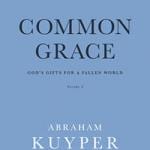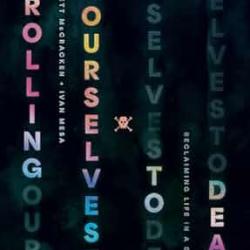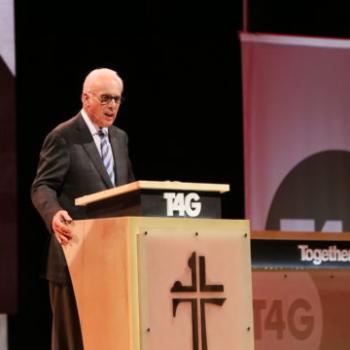In my ongoing effort to read through one of the Philip Schaff volumes of ante- and post- Nicene Fathers at least twice a year (an effort which I continue to discourage others from trying). Unlike the previous part of this set (Augustine’s works), this is my first time dipping my toes into John Chrysostom. I admit I considered skipping this to dig into the most diverse second series of the Post-Nicene Fathers set (the ones with the blue strip instead of the green stripe). But being a stickler for order…
Frankly, this first volume of Chrysostom is excellent. Maybe all of it is, I don’t know. Though obviously there’s a reason someone slapped “Chrysostom” after his name (it’s not a last name, it means golden-tongued or golden-mouthed or something like that). Certainly he has all the theological problems of his day, at times inclining near to a works-based righteousness:
“It seems to me then that the reason why [Jesus] said nothing to that man [the paralytic lowered through the roof in Matthew] about the remission of sins, but only secured him against the future, was because the penalty for his sins had been already worked out by the long duration of his sickness…” (218)
Chrysostom then says that maybe that’s not it at all, maybe Jesus was talking about something else entirely there. So don’t hold too much of this “your works will purify your sins” against Chrysostom, it’s speculative when it’s there and never very well supported from the Bible (for the obvious reasons that such things aren’t in the Bible). Likewise his occasional asceticism is pretty mild all things being equal–and it certainly won’t do contemporary Americans any harm when set against our bottomless pits of gluttony and self-indulgence.
Aside from these sorts of moments, the sermons, letters, and essays (or at least ancient versions of essays) in this volume are excellent and absolutely worth your time. Chrysostom is pastoral, rigorous in his use of Scripture, and brings fascinating insights on everything from natural law to church/state relations to personal devotions. There’s far too much that’s good to give an involved overview here, instead I’ll leave you with Chrysostom’s thoughts on the difference between human desiring a prostitute and God’s desiring a prostitute:
“If a man indeed desire a harlot he is condemned, and doth God desire one? Yea verily. Again a man desireth a harlot that he may become a fornicator: but God that He may convert the harlot into a virgin: so that the desire of the man is the destruction of her who is desired: but the desire of God is salvation to her who is desired. And why did He who is so great and powerful desire an harlot? that He might become the husband thereof.
….
God desired an harlot, and how doth He act? He does not conduct her on high; for He would not bring an harlot into heaven, but He Himself comes down. Since she could not ascend on high, He descends to earth. He cometh to the harlot, and is not ashamed…” (258-259)
So get this book and read it and benefit from the great faithfulness of this preacher of the past!
Dr. Coyle Neal is co-host of the City of Man Podcast and an Associate Professor of Political Science at Southwest Baptist University in Bolivar, MO












